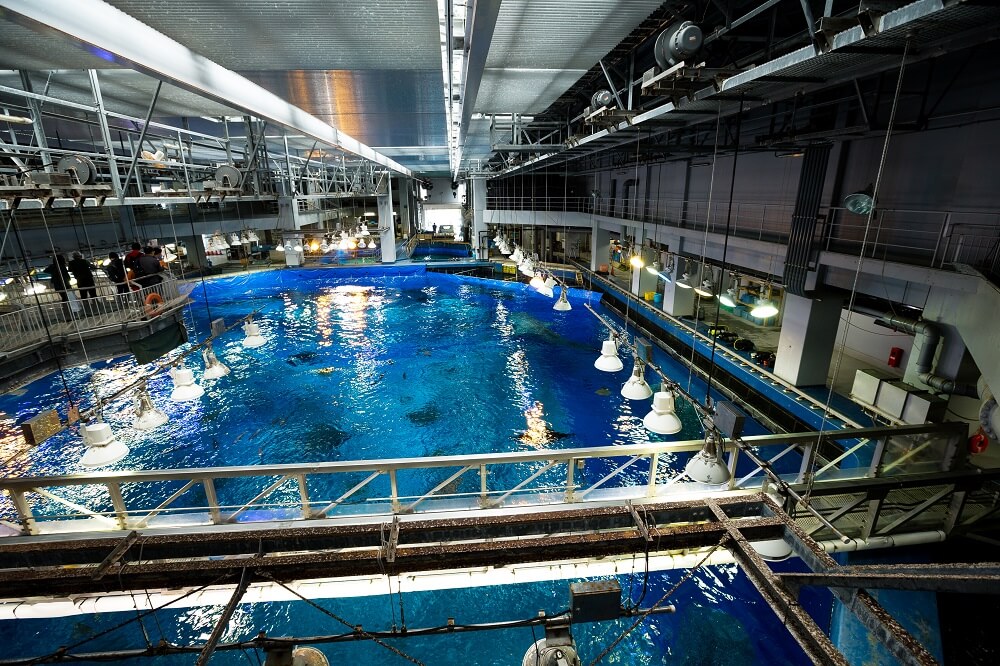The type of sealant you use for a particular commercial, residential, or industrial application makes a big difference in terms of the longevity and overall strength.
Over the years, polyurethane sealants have earned the designation of becoming the industry standard material to use across a wide range of applications. There’s a good reason for this. Advancements in polyurethane sealant development have made it one of the strongest and most resilient adhesive and binding agents in the building material industry.
Keep reading to learn about all of the different polyurethane sealant application methods, uses, and characteristics.

What Is a Sealant?
Sealants are used for a variety of applications in the building, construction, and remodelling industries. Most notably, sealants such as polyurethane, silicone, acrylic, and polymer are used as grouting and insulating materials that fill gaps and waterproof structures to prevent damages such as cracks and leaks.
As a form of insulation, sealants also prevent air flow through building joints (e.g., windows and door frames) to regulate temperatures inside structures. Typically, sealants also have a certain amount of flexibility to allow for some structural movement and prevent damages.
In addition to serving a practical purpose, gap sealants also add to the aesthetic appeal of a structure by hiding minor imperfections that occur during the construction process. Sealant is an inexpensive and easy to apply solution that can boost the functionality and aesthetic of any structure while adding long-term value and stability.
Types of Sealants
Hybrid Polymer Sealants
This is an arbitrary term that refers to essentially any combination of sealants that have different chemical compounds. MS polymers are the most commonly used hybrid polymer sealants currently on the market.
Acrylic Sealants
Before the invention of silicone sealants, acrylic was the sealing material of choice for many building industry experts. Acrylic is more affordable and durable than silicone in many regards and can be used in a wide range of applications.
Silicone Sealants
Silicone is a synthetic material that’s suited for both indoor and outdoor use. It’s highly resistant to the UV rays of the sun and can withstand hours of exposure to direct sunlight without deteriorating.
Polyurethane Sealants
Polyurethane sealant is the product of the reaction of two organic compounds, glycol and an isocyanate.
What Is a Polyurethane Sealant?
There are different configurations of polyurethane sealants that are currently available on the market. Each one is appropriate for various uses and applications, so always be sure to read the label carefully.
- Standard polyurethane sealant
- Polyurethane construction sealant
- UV-resistant polyurethane sealant
- Non-staining polyurethane sealant
What Are the Characteristics of Polyurethane Sealant?
Common characteristics of polyurethane sealant (depending on the specific use and application) include:
- Corrosion-resistant
- Moisture-resistant
- Can be used for industrial and commercial applications
- Heavy-duty long-lasting adhesive
- Protective coating
- Chemical-resistant
- Flexible (moves with joints as they contract and expand due to exposure to fluctuating temperatures and climates)
- Crack-resistant
- Long-lasting results
- Available as a one- or two-component compound for various applications
- Low-VOC content
- Easy application
- Easy cleanup
- Water or latex-based compounds available
- Abrasion-resistant
- Scuff-resistant
Polyurethane Sealants and Methods of Application
There are a number of polyurethane sealant application methods, including:
- Pressing
- Layering
- Spraying
- Brushing
Since polyurethane sealant is typically sold in 10-ounce tubes, the most common application technique is to use a caulking gun to render absolute precision when sealing tight corners and joints.
Depending on their chemical compound configurations, polyurethane sealants can be used for a variety of construction projects, installations, repairs, and remodelling projects.
Low modulus polyurethane with a shore hardness that goes up to 45 can be used as a connecting agent between two pre-assembled building materials, while polyurethane roof sealants can be used to seal the joints in rainwater collection pipes. Polyurethane construction sealants can also be used to insulate joints between concrete blocks and seal aluminium pipe joints to prevent leaks and cracks.
Polyurethane sealants that have a hardening capacity of 45 and over typically have high surface adhesion capabilities, but minimal flexibility. This type of polyurethane sealant is most suitable for the automotive and HVAC industries. It can be used for auto glass repair as well as sealing metal structures like storage containers, trucks, and car parts.
But it’s also strong enough to be used in the manufacturing and installation of air conditioning systems. Polyurethane sealants not only provide a strong bind and seal metal sheet joints in place, but they also reduce the amount of vibrations while AC units are operating. These are the types of polyurethane products that are typically used for these applications:
- Extra strong polyurethane sealant
- Polyurethane adhesive sealant
- Premium polyurethane sealant
- PU auto glass adhesive
- PU glass adhesive
- PU metal adhesive
- PU marine adhesive
IMC Distributors Polyurethane Products and Applications
As one of the leading building material distributors in Canada, IMC Distributors offers a variety of high-quality polyurethane sealants that also provide excellent waterproofing solutions and chemical resistant coatings for numerous applications:
Why Choose Our Polyurethane Sealants?
IMC Distributors is the exclusive distributor of ISOMAT and NUKOTE Coating products across Canada. We’re also proud to be the master distributor for Lab Surface in Ontario and we distribute Protocol Concrete Protection Products that are designed with Innercrete technology. We provide our customers with the latest industry-recognized and proven product advancements with the most efficient installation methods. Contact us for more information.
 Karli Logan is the Owner and President of IMC Distributors which is the exclusive partner of Nukote Coating Systems in Canada. With a B.Sc and M.Sc, as well as a demonstrated history of working across a number of industries, she has a passion to drive significant gains and benefits for IMC’s clients.
Karli Logan is the Owner and President of IMC Distributors which is the exclusive partner of Nukote Coating Systems in Canada. With a B.Sc and M.Sc, as well as a demonstrated history of working across a number of industries, she has a passion to drive significant gains and benefits for IMC’s clients.